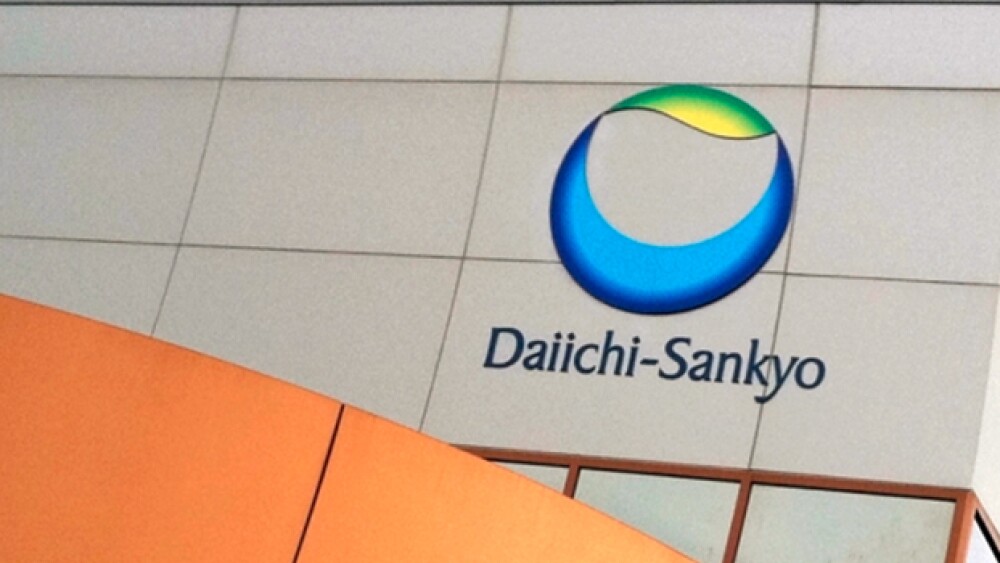On Thursday, Nikkei Business reported that Japan’s Daiichi Sankyo was in negotiations with several companies to sell its over-the-counter drug unit. The final price, Nikkei Business suggested, would hit around $900 million.
On Thursday, Nikkei Business reported that Japan’s Daiichi Sankyo was in negotiations with several companies to sell its over-the-counter (OTC) drug unit. The final price, Nikkei Business suggested, would hit around $900 million.
However, in a terse announcement, Daiichi Sankyo denied the reporting, saying, “Although Daiichi Sankyo is constantly examining the potential for a variety of strategic developments with the aim of sustainable business growth, this reporting is not correct.”
Daiichi Sankyo’s OTC unit manufactures Lulu Attack cold medicine, Gaster 10 stomach medicine and an energy drink, Regain.
Reuters originally reported a similar story at the beginning of March. The news service reported that the company had hired JP Morgan to advise on a possible deal, citing “several people with knowledge of the matter.”
The four sources told Reuters that the company was considering selling Daiichi Sankyo Healthcare. At that time, a Daiichi Sankyo spokeswoman said nothing had been decided.
In its quarterly financial call in April, company chairman and chief executive officer Joji Nakayama was asked by an analyst if he was planning to sell the unit. Nakayama said at the time, “I have been saying that we will sell our non-core assets and will focus on core businesses.”
When pressed on how the company might reorganize the non-core business of the primary business grew stronger, he said, “The more we become focused, the more things there will be for us to consider in the future. However, we have not decided anything as to what you mentioned.”
Daiichi Sankyo’s bestseller is blood pressure medication Benicar (Olmesartan). But that drug is losing patent protection and the company has been shifting its focus towards the oncology market.
In March, Daiichi Sankyo inked a global development and commercialization deal with AstraZeneca for trastuzumab deruxtecan, an antibody-drug conjugate (ADC). This reinforces AstraZeneca’s four-point strategy—tumor drivers and resistance, DNA damage response, immuno-oncology and ADCs. The drug is in development for multiple HER2-expressing cancers, including breast and gastric cancer, and in HER2-low expressing cancers. In 2017 the U.S. Food and Drug Administration (FDA) granted it Breakthrough Therapy Designation for HER2-positive, locally-advanced or metastatic breast cancer patients who have been treated with trastuzumab and pertuzumab whose disease has progressed after trastuzumab emtansine.
At the time, Nakayama stated, “Trastuzumab deruxtecan is the flagship asset in our oncology pipeline created by our relentless pursuit of science and technology, the most important strengths of our company. Through the strategic collaboration with AstraZeneca, a company with a wealth of global experience and expertise in oncology, we will combine our respective skill sets to maximize the value of trastuzumab deruxtecan and accelerate the establishment of our global oncology business.”
However, despite the promise of the AstraZeneca deal, not all of Daiichi Sankyo’s oncology focus is panning out. On May 15, the FDA’s Oncologic Drugs Advisory Committee voted 3 for and 8 against approval for the company’s new drug application (NDA) for quizartinib for adults with relapsed/refractory FLT3-ITD acute myeloid leukemia (AML). This was based on the pivotal Phase III QuANTUM-R trial that showed the drug provided benefit that outweighed the safety risks. The FDA isn’t required to follow the recommendations, but often does. The target action date for the decision is August 25, 2019.





